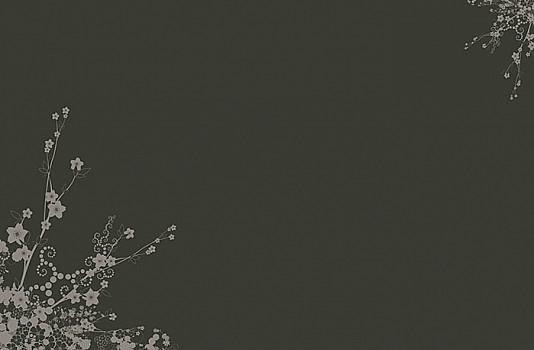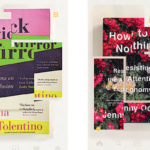From role playing to reality
Advertising and marketing have utilised women to sell products. Not in terms of mere models but as vehicles to reach homes. But have brands and communication specifically targeted women? Have marketers specifically designed products keeping them in mind? Barring a few clichéd exceptions in obvious categories one can safely say ‘No’.
And the reason cannot be just the lack of economic empowerment. For that is present even in the case of kids, who despite this are a direct and overt target audience for many a product and there is marketing communication targeted directly at the 11-14 age group.
Is the Indian woman recognised as a serious consumer and decision-maker at all? Yes, if we view her in her designated roles and perhaps not when the question is that of acknowledging her as an individual entity.
Before we start blaming the marketers and advertisers we need to understand the socio-traditional circumstances of women. An Indian woman and her institutionalised societal situation, to my mind at least, are intriguingly complex.
Traditionally, a woman has not been recognised as an individual in our country. Society has been in a hurry to push her into roles – the ideal daughter, the perfect wife, the dutiful daughter-in-law, the loving mother.
The transition from daughter to wife is acknowledged and encouraged because she is typifying roles but the transitional phase between the two where she is a lover, a girlfriend or a person who has decided to buck the trend of marriage and carve out a career for herself, is frowned upon. The one stage where she is being herself, a woman, an individual person, she is allowed little space. Her awareness as an individual, her potential and self-expression in all dimensions, sexual or otherwise, is not nurtured, but buried under norms.
Even a conventional personal moment, that of her first intimate encounter with her partner gets converted into a participative sport. Take the example of a suhaag raat in our Indian context. It is given a ‘social grant’ by the family and becomes a staged act in which the entire family gets involved. The groom’s sisters decorate the room and the ‘marital bed’, the friends go to lengths to procure the aphrodisiac-laced paan, the sister-in-law places that glass of milk with an all-knowing smile, an older male relative closer in age to the groom is given the honour of initiating the groom into his ‘role’ that night, the giggling battalion of younger cousins is a permanent fixture around the room. And in the morning the elderly lady of the house will not shy away from asking for details and the assurance that “all went well”.
Desire is garbed under a ritual. The power of intimacy stands diluted by societal control. Her individuality is shorn and ‘shared’ by society.
So even in advertising it is the ‘role-playing’ woman: the wife, the loving mother, dutiful daughter-in-law, who is acknowledged. Her ‘sacrificial’ role is venerated in society and advertising pays obeisance.
So much so that as marketers and communication experts we cannot even sell her products or services on the convenience platform. All the things that make her life easier – be it a washing machine or ready-made foods – have to be sold not as products that will free her from the mundane but couched in various benefits for the family, not for her. We have glorified sacrifice. If honestly and without the apprehension of being judged as a mother or wife, she is asked, she would admit that she would like to take advantage of products and appliances that make her chores easier.
But meetings after meetings I have sat in where research findings present that women don’t want the ‘pain’ that they take for their families to be seized. Hypocritical? Of course, because she is trapped in this societal framework that perpetuates these double standards.
Society has pushed her to believe that making round chappatis is the best thing she could do and the communication machinery excels in propagating a fake sense of fulfilment for the inconsequential.
“Oh, you washer of the whitest shirts, oh, you the vanquisher of the cockroach, the one who can make a toilet seat sparkle, the mighty warrior who has defeated the stubbornest stain…we bow to you.” Ridiculous!
As a society these things have got credence because somewhere there is the traditional subversive machinery that works overtime to stop women from getting involved in the meaningful battles of life, the real decisive matters.
Society has pushed and manipulated a woman into getting ultimate fulfilment from the trivial joys of life and worse, not acknowledging her as an individual entity but pushed into typified roles.
It is not to say that a woman doesn’t enjoy or take pride in cooking or running a spotless home or she doesn’t like to be appreciated if her children look and perform to the best of their abilities but to glorify these as what defines her worth is ridiculous. There is more than that, that defines her.
Fortunately she is learning to decipher between the real achievements and the manufactured ones.
She knows her identity is dependent on independence of thought, her intellect and compassion as an individual entity.
It is a no-brainer that education and economic freedom has led to this growing awareness about her individuality and identity. In turn she has started to expect more than just the basics from her man and the social system around her. Not in a materialistic sense of the word but on the parameters of empathy, respect, support and partnership. Reminds me of a poem I had penned sometime ago “Main jheel hoon, ukta gayi hoon”…. It’s about a woman’s state of mind – fed up of being like a lake – still, silent and self-contained – she wants to be a freshwater stream – gurgling, on the move, full of life.
Partly driven by need and partly by opportunity the woman’s world is changing and in turn she is changing the world. There are talks about men changing and becoming more accommodating and sensitive. To my mind this is but a reaction. There is no option. Faced with the power of the woman they have to change.Sure we are in a transition phase and things are not going to settle down into one standard identifiable entity soon enough. But change there is.
In these circumstances we could do more than pay lip service to her, for there is a huge market waiting to be tapped. That of the individual woman consumer.
Related posts from Verve:
Verve Trending
Sorry. No data so far.
us on Facebook to stay updated with the latest trends






